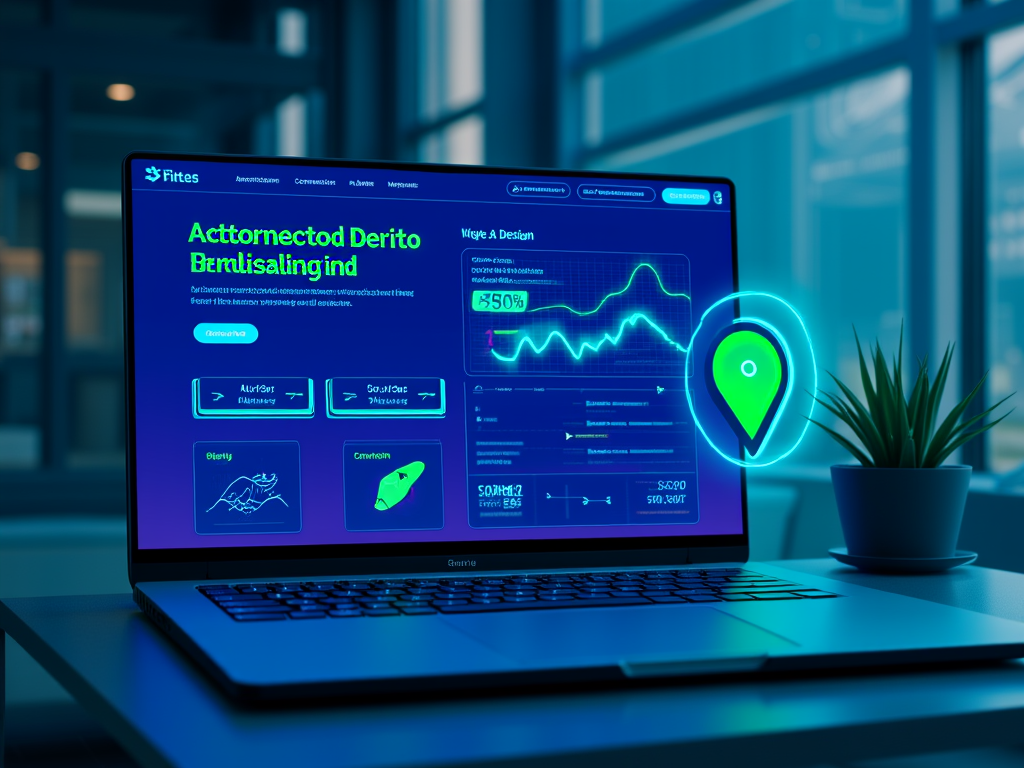The role of domains in online reputation management
Introduction
In a world where everything is just a click away, the importance of maintaining a positive online reputation cannot be understated. The building blocks of this digital persona often begin with a singular, significant element: the domain name. Beyond just being a web address, your domain acts as a vital branding tool, a beacon of credibility, and a critical factor in your visibility across search engines.
The significance of a domain name in establishing credibility
When potential customers or clients encounter your domain, they form immediate impressions, often before even landing on your site. This makes the selection of your domain name pivotal.
Brand Alignment
The alignment of your domain with your brand can create a sense of familiarity and trust. It's like meeting someone at a party: if their name matches their face, it’s easier to remember them. A domain that echoes your business name is professional and reassuring—it reduces confusion in an online space brimming with options.
Simplicity and Memorability
Consider the names that stick long after you’ve heard them. They are often simple and straight to the point. In fact, research suggests that consumers are more likely to revisit sites with shorter, snappier domain names. It’s like choosing a song title; you wouldn't want a single track to be overshadowed by a long-winded name. Strive for clarity—keep it concise, avoid complex spellings, and aim for an easy-to-type address.
Domain Extensions
While it might seem trivial, the extension of your domain carries weight. Familiar extensions like .com, .org, or .edu cultivate trust. They suggest authority and legitimacy. Others, especially lesser-known extensions, can create skepticism. Would you enter your credit card details on .xyz? Think about the associations your domain extension conjures.
The role of domains in SEO and visibility
Opting for the right domain name can also significantly impact your search engine rankings. But this isn't just a simple case of throwing keywords together.
Keyword Relevance
Including keywords relevant to your business helps signal to search engines what your site is about, enhancing your chances of appearing in relevant searches. However, it’s a delicate balance; keyword stuffing can turn potential visitors away. It’s similar to a recipe; you want just the right amount of seasoning—too little, and it’s bland; too much, and it becomes unpalatable.
Actionable SEO Strategies
-
Be region-specific: If your business has a geographical focus, integrating local keywords can help draw in more customers from those areas.
-
Use broad matches for relevance: Instead of focusing solely on niche terms, think expansively. A domain name that appeals to broader categories can harness varied traffic.
-
Pay attention to history: When considering a pre-owned domain, due diligence is crucial. An obscured past can jeopardize your reputation and SEO efforts—they can haunt you like a ghost from a past life.
The emotional aspect of domains
It’s essential to acknowledge the emotional connection we form with domain names. Think about how you feel when you visit a well-designed site with a professional-looking URL versus a clunky, awkwardly named one. Trust is paramount in business and your domain bears the weight of that first impression.
Domains as extensions of personal expression
Just as a name can reflect personality, your domain can embody what you stand for. It is an opportunity to express your values, mission, and aspirations concisely. It's like donning your best outfit before stepping out; your domain is the sharp suit or elegant dress that introduces you to the world.
Story behind your domain
Often, there’s a story behind the choice of a domain. Maybe it’s the place where your passion first took root or a nod to your family legacy. Publicly sharing those stories can enhance the connection with your audience, making them feel part of your journey. It’s this sense of belonging that cultivates loyalty and trust.
By weaving together these threads of brand identity, credibility, SEO strategy, and emotional resonance, we can appreciate the true role of domains in shaping our online reputation. As we devote time to refining our online presence, every aspect matters—especially the domain we choose. Each decision echoes in the digital landscape, contributing to the narrative we share with the world.
FINDDOMAIN.GE (Internet services LLC) is a very interesting and rapidly developing IT company. The main directions are: web development, domain and web hosting. It also offers clients sub-services and outsourcing related to the main services.
BEST OFFERS:
Do you want to create your own company website or create your own online business on the Internet?
– WEB HOSTING
– DOMAIN REGISTRATION
– WEB DEVELOPMENT
– SITE BUILDER



## Nurturing your domain for ongoing reputation management
The journey doesn't stop once you've chosen and launched your domain. Just as a garden requires consistent care to flourish, your online reputation demands ongoing attention and management. The evolving nature of the digital space necessitates that we monitor our domains actively, maintaining their relevance and resonance with our audience.
Regular audits and assessments
Conducting periodic audits of your domain and its performance is crucial. This isn’t just a check-up; think of it as a deep dive into the health of your online presence. Here are steps to help you get started:
-
Check for backlinks: Analyze the backlinks pointing to your domain. Are they from reputable sources? Disavow any that may harm your credibility.
-
Monitor your brand mentions: Use tools like Mention or Talkwalker to track where your brand is being discussed online. It’s essential to respond to both positive and negative feedback with grace and professionalism.
-
Analyze site traffic: Keep an eye on your web analytics to understand user behavior. High bounce rates might signal that your site isn't meeting visitors' expectations based on your domain's promise.
Adapting to shifting digital landscapes
As technology evolves, so should your approach to domain management. New platforms rise while others fade, and consumer expectations shift like sand. Engaging in proactive domain management means staying attuned to these changes and adapting accordingly.
Optimize for mobile
Mobile browsing continues to dominate. Ensure your domain is optimized for all devices. This not only enhances user experience but also positively impacts your SEO ranking. Google prioritizes mobile-friendly sites, making it a no-brainer.
Leverage social media
Your domain is just one aspect of your online presence. Intertwining it with your social media profiles amplifies your reach. Share content that directs traffic back to your site, encouraging user engagement. Consistent branding across platforms strengthens recognition and trust.
Protecting your domain
In the realm of online reputation, defense is just as important as presentation. Securing your domain is imperative to prevent potential threats. Here’s how to bolster your domain's defenses:
-
Register related domains: Claiming domains that are minor variations of your main one is a strategic move to protect your reputation. This prevents competitors or malicious entities from seizing domains that could confuse or mislead your audience.
-
Utilize domain privacy services: Keeping your personal information private shields you from spam and potential cyber risks. These services mask your personal details in the WHOIS database, granting you an added layer of protection.
-
Set up alerts: Use tools like Google Alerts for your brand name or domain. This way, you'll be notified instantly if something new comes up about your brand online, be it good or bad. Staying aware allows you to respond promptly.
Marking your progress
Tracking your reputation and measuring success over time can't be overlooked. Implementing tools to gauge the effectiveness of your domain will provide valuable insights into areas that need refining. Some metrics to consider include:
-
Domain authority: Monitor your site’s domain authority, which indicates how likely you are to rank in search engine results.
-
Traffic sources: Assess where your visitors are coming from—whether it’s organic search, social media, or direct traffic—to understand your audience better.
-
Engagement metrics: Look out for bounce rates, average session duration, and pages per session to gauge user engagement.
Embracing the journey
In conclusion, your domain is more than just an address—it’s the embodiment of your brand, the anchor of your online reputation, and a powerful tool in your digital marketing strategy. Navigating the intricate web of online reputation management requires foresight, dedication, and agility. As your business evolves, so too should your domain strategies.
Reflect on this: A well-maintained domain can transform perceptions, cultivate trust, and pave the way for success in the vast digital expanse. Cherish and nurture your domain, and it will serve you well on this journey.
For further insights and strategies regarding online reputation management, check these useful videos:
- The Importance of Domain Names in Online Branding
- How to Boost Your Online Reputation Easily
- SEO Essentials for Your Domain Name
This thoughtful engagement will support you in not only managing your online identity but fostering lasting connections with your audience.
FINDDOMAIN.GE (Internet services LLC) is a very interesting and rapidly developing IT company. The main directions are: web development, domain and web hosting. It also offers clients sub-services and outsourcing related to the main services.
BEST OFFERS:
Do you want to create your own company website or create your own online business on the Internet?
– WEB HOSTING
– DOMAIN REGISTRATION
– WEB DEVELOPMENT
– SITE BUILDER





![Website Hosting Providers in [Local Area]: What to Choose](https://besthosting.ge/wp-content/uploads/2025/08/website-hosting-providers-in-local-area-what-to-choose.jpg)
![WordPress Website Experts in [Your City]](https://besthosting.ge/wp-content/uploads/2025/08/wordpress-website-experts-in-your-city.jpg)

![Web Development Services in [Local Area] for E-commerce](https://besthosting.ge/wp-content/uploads/2025/08/web-development-services-ecommerce-local-area.jpg)